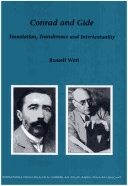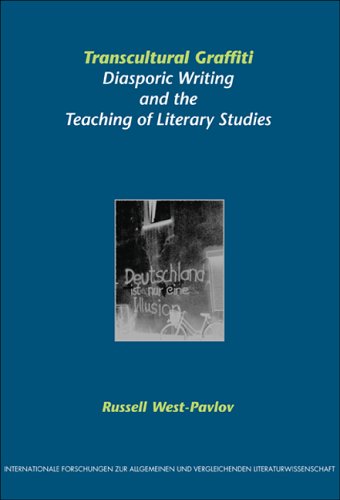Internationale Forschungen zur Allgemeinen und Vergleichenden Literaturwissenschaft
2 primary works
Book 16
This study examines the relations between the work of the Polish-English novelist Joseph Conrad and the French Nobel Prize winner Andre Gide. Gide's translation of Conrad's Typhoon is read as a work belonging paradoxically to the oeuvres of both writers, where their respective preoccupations meet with illuminating results.
Focusing also on other major works by Conrad and Gide, the study suggests that the intertextual and personal interaction between these two masters of 20th Century fiction was governed by processes of identification and projection, conflict between master and disciple and a consequent resistant reading of texts, and confrontation with linguistic and cultural heterogeneity.
Issues of translation theory, psychoanalysis and intertextuality are brought together to offer a glimpse of a possible dialogue between literature and ethics.
This study will be of interest to students and researchers in English, French and Comparative Literature.
Focusing also on other major works by Conrad and Gide, the study suggests that the intertextual and personal interaction between these two masters of 20th Century fiction was governed by processes of identification and projection, conflict between master and disciple and a consequent resistant reading of texts, and confrontation with linguistic and cultural heterogeneity.
Issues of translation theory, psychoanalysis and intertextuality are brought together to offer a glimpse of a possible dialogue between literature and ethics.
This study will be of interest to students and researchers in English, French and Comparative Literature.
Book 87
Transcultural Graffiti reads a range of texts - prose, poetry, drama - in several European languages as exemplars of diasporic writing. The book scrutinizes contemporary transcultural literary creation for the manner in which it gives hints about the teaching of literary studies in our postcolonial, globalizing era. Transcultural Graffiti suggest that cultural work, in particular transcultural work, assembles and collates material from various cultures in their moment of meeting. The teaching of such cultural collage in the classroom should equip students with the means to reflect upon and engage in cultural 'bricolage' themselves in the present day. The texts read - from Cesaire's adaptation of Shakespeare's Tempest, via the diaspora fictions of Marica Bodrozic or David Dabydeen, to the post-9/11 poetry of New York poets - are understood as 'graffiti'-like inscriptions, the result of fleeting encounters in a swiftly changing public world. Such texts provide impulses for a performative 'risk' pedagogy capable of modelling the ways in which our constitutive individual and social narratives are constructed, deconstructed and reconstructed today.

